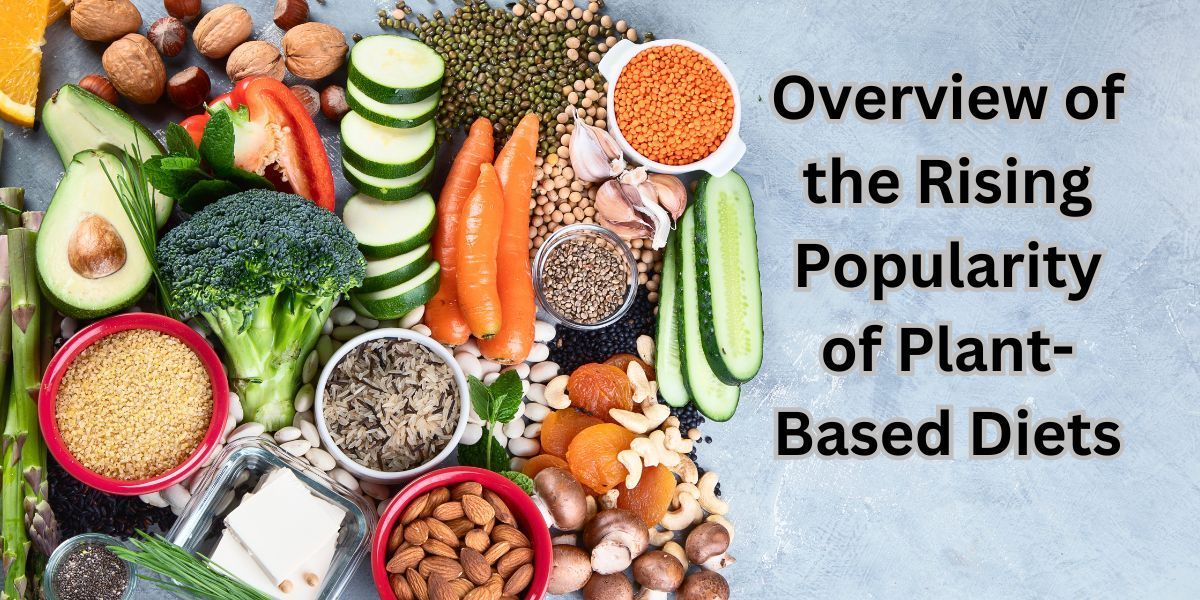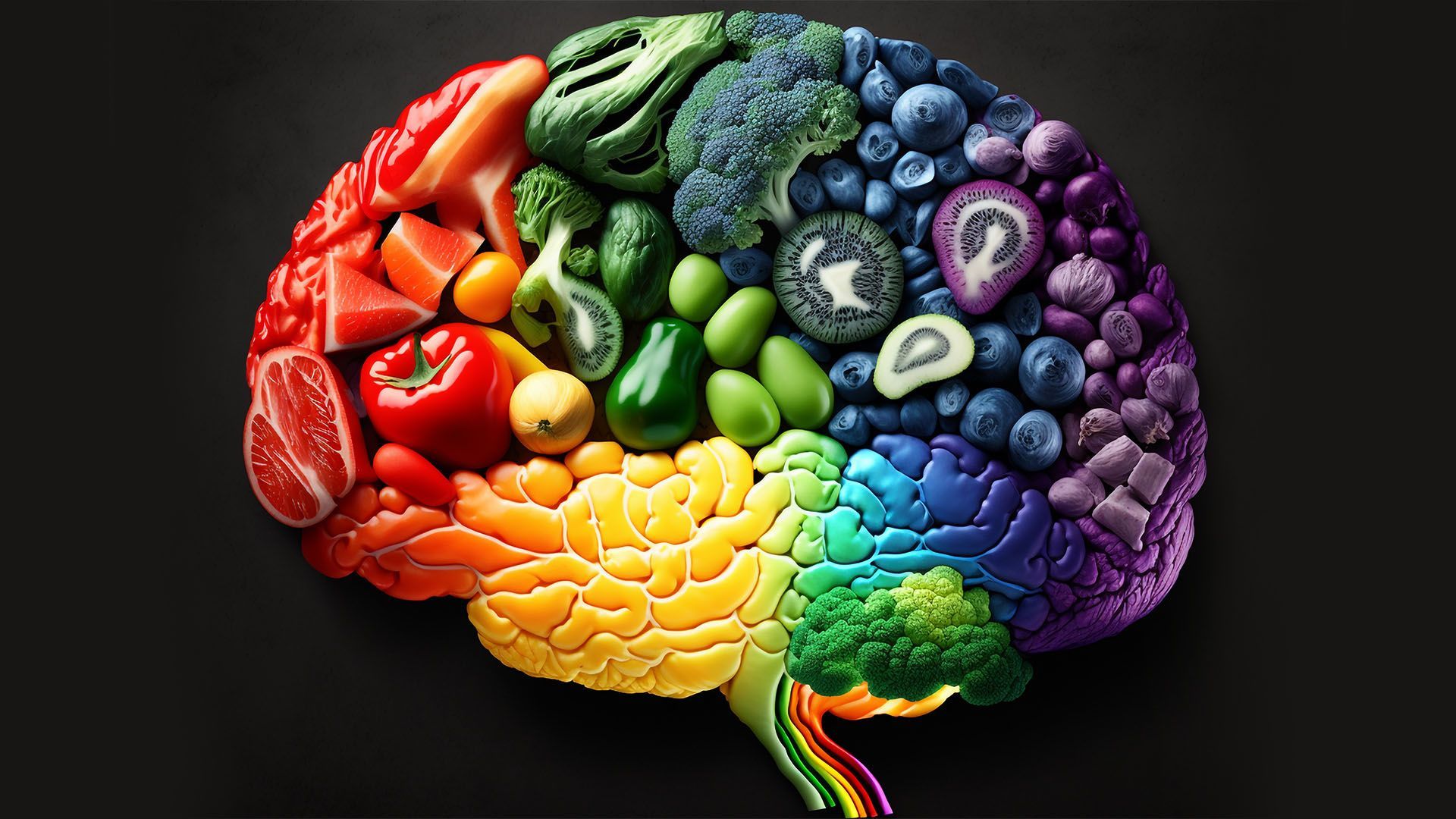Elevate Your Health with Customized Plant-Based Meal Plans: A Smart Approach for Modern Lifestyles
Elevate Your Health with Customized Plant-Based Meal Plans: A Smart Approach for Modern Lifestyles
The popularity of
plant-based diets
has significantly increased in recent years, driven by health, environmental, and ethical motivations. High-profile endorsements from celebrities, athletes, and influencers have amplified their appeal. Market research forecasts substantial growth in the global plant-based food market, reflecting a broader shift in consumer preferences towards these options, which are increasingly available in restaurants, supermarkets, and even fast-food chains.

A plant-based diet primarily includes plant foods such as vegetables, fruits, nuts, seeds, oils, whole grains, legumes, and beans. It doesn't necessarily exclude animal products but emphasizes foods from plant sources. The diet is renowned for its potential health benefits, including enhanced heart health, weight management, and a reduced risk of chronic diseases like diabetes, hypertension, and certain cancers. A plant-based diet contributes significantly to overall well-being and longevity and is rich in essential nutrients, fiber, and antioxidants.
Understanding Plant-Based Nutrition
What Does Plant-Based Nutrition Involve?
Plant-based nutrition focuses on consuming foods primarily from plants, including vegetables, fruits, whole grains, nuts, seeds, legumes, and oils. It supports a balanced intake of essential nutrients while minimizing processed foods and animal products.

Key Components of a Well-Rounded Plant-Based Diet
1. Whole Foods:
- Focus on unprocessed or minimally processed foods to retain natural nutrients.
- Examples include fresh fruits and vegetables, whole grains, nuts, seeds, and legumes.
2. Grains:
- Essential for fiber, vitamins, and minerals.
- Examples include brown rice, quinoa, whole wheat, barley, and oats.
3. Legumes:
- Key for high protein and fiber content.
- Examples include lentils, chickpeas, black beans, and peas.
4. Nuts and Seeds:
- Sources of healthy fats, protein, and essential micronutrients.
- Examples include almonds, walnuts, chia seeds, flaxseeds, and sunflower seeds.
5. Plant Oils:
- Necessary for balanced nutrition.
- Examples include olive oil, avocado oil, and coconut oil.
The Nutrient Profile of a Typical Plant-Based Diet
A comprehensive plant-based diet provides vital macronutrients and micronutrients. Proteins from legumes, nuts, seeds, and whole grains are beneficial as they are low in saturated fats and cholesterol-free. Carbohydrates from whole grains, fruits, and vegetables provide lasting energy and essential fiber. Healthy fats from nuts, seeds, and plant oils promote heart and cognitive health. This diet is also rich in vitamins A, C, E and various B vitamins, mainly from fruits and vegetables.
Additionally, it includes essential minerals like magnesium, potassium, and iron. Although iron from plant sources is non-heme, its absorption can be improved by consuming foods rich in vitamin C. The high fiber content aids digestive health, regulates blood sugar levels and supports weight management. Plant-based diets also contain antioxidants and phytochemicals that reduce inflammation and protect against chronic diseases.
Health Benefits of a Plant-Based Diet

A plant-based diet offers numerous health benefits:
- Improved Heart Health: Low in saturated fats and cholesterol, it helps reduce blood cholesterol levels and lower the risk of heart disease.
- Lower Risk of Chronic Diseases:
Linked to a lower risk of type 2 diabetes and certain cancers due to high fiber and antioxidant content.
- Better Weight Management: High in nutrients and fiber, it helps manage weight effectively by promoting satiety and reducing calorie intake.
Insights from Recent Studies on Plant-Based Eating
1. Studies on Heart Health: Research in the Journal of the American Heart Association shows that plant-based diets significantly lower heart disease risk.
2. Chronic Disease Prevention: A JAMA Internal Medicine meta-analysis finds a correlation between plant-based diets and a lower risk of type 2 diabetes.
3. Weight Management and Metabolic Health: According to Obesity Reviews, plant-based diets are effective for weight loss due to their lower energy density and high fiber content.
The Importance of Whole Foods in a Plant-Based Diet
Whole foods are the cornerstone of a nutritious plant-based diet. Unlike processed foods, which may contain unhealthy fats and additives, whole foods like fruits, vegetables, whole grains, legumes, nuts, and seeds are natural and packed with essential nutrients. These foods are crucial for maintaining health and preventing chronic diseases by providing a balanced mix of vitamins, minerals, fiber, and antioxidants.

Tips and Strategies for Effective Meal Planning Using Whole Foods
Effective meal planning with whole foods involves:
- Planning Ahead: Create weekly meal plans using seasonal whole foods.
- Prepping: Wash, chop, and cook grains and legumes in advance.
- Batch Cooking: Cook staples in large quantities to save time.
- Shopping Smart: Use a detailed shopping list to avoid impulse buys.
Incorporate a variety of colors and balance proteins, fats, and carbohydrates to maximize nutrient intake and keep meals exciting.
How Whole Foods Contribute to Nutrient Density and Overall Health
Due to their high nutrient density, whole foods are essential for a healthy diet. They provide substantial essential vitamins, minerals, and beneficial compounds while containing few calories. The body's overall functioning and good health depend on whole foods' wide range of nutrients.
Whole foods are a treasure trove of fiber, a key player in maintaining good digestive health. Fiber promotes the smooth movement of food in the digestive tract, preventing constipation and supporting healthy bowel movements. It also functions as a prebiotic, nourishing beneficial gut bacteria crucial for digestion and a robust immune system.
Regulating Blood Sugar Levels: The complex carbohydrates in whole foods, such as fruits, vegetables, and whole grains, are broken down more slowly than those in refined grains. This slower digestion process helps maintain stable blood sugar levels, preventing the spikes and dips after eating highly processed foods. Stable blood sugar levels are essential for controlling cravings, improving mood, and lowering the risk of insulin resistance and diabetes.
Lowering Cholesterol: "Many whole foods contain soluble fiber, which has been shown to help lower LDL cholesterol levels, often referred to as "bad" Cholesterol. Soluble fiber binds with cholesterol particles in the digestive system and moves them out of the body before they can be circulated." Additionally, nuts and seeds contain healthy fats and phytosterols that help reduce Cholesterol.
Thanks to their high fiber and water content, whole foods are superheroes in weight management. They excel at inducing feelings of fullness and reducing overall calorie intake, which can be a game-changer. Foods high in fiber and water require more chewing, which slows down the eating process and allows the body to recognize fullness, reducing the risk of overeating.
Combating Oxidative Stress and Inflammation: Whole foods contain abundant antioxidants and phytochemicals, crucial for reducing oxidative stress and inflammation in the body. Oxidative stress occurs when there are too many free radicals—unstable molecules that can damage cells—and insufficient antioxidants to neutralize them. Chronic oxidative stress can lead to several diseases, including cancer, cardiovascular diseases, and Alzheimer's. The antioxidants in whole foods like berries, green leafy vegetables, and beans can help mitigate this damage.
Protection Against Chronic Diseases: The cumulative benefits of consuming whole foods—such as improved heart health, enhanced gut health, reduced obesity risk, and strengthened immune system—contribute significantly to preventing chronic diseases. Whole food diets are associated with lower risks of heart disease, high blood pressure, diabetes, and some cancers. This protective effect is due to the synergistic actions of the various nutrients, fiber, and natural compounds contained within these foods.
Incorporating a variety of whole foods into your daily diet is one of the most beneficial choices you can make for your health. Each type of whole food brings unique nutrients and health benefits, making it essential to consume a diverse range to reap the maximum health advantages.
Personalizing Your Vegan Diet
Customizing a Vegan Diet to Fit Individual Needs
Customizing a vegan diet involves assessing daily caloric needs and focusing on key nutrients that might be less available, such as vitamin B12, vitamin D, and omega-3 fatty acids. Tailor your meal plan to fit your lifestyle and preferences, ensuring it includes enjoyable and tolerable foods.

Tools and Assessments for Personalized Vegan Meal Plans
- Nutritional Tools: Utilize apps like MyFitnessPal and Cronometer for tracking intake and planning meals.
- Professional Advice: Consult with a dietitian for tailored advice based on specific health needs.
Benefits of a Personalized Approach to Vegan Eating
A personalized vegan diet optimizes nutrient intake, prevents deficiencies, and enhances overall health. It increases satisfaction and adherence, addressing specific health concerns and supporting long-term success.
Conclusion
Embracing a plant-based diet offers extensive benefits for health and sustainability. By focusing on plant-based nutrition, utilizing meal planning tools, and adopting eco-friendly eating habits, individuals can enjoy a nutritious diet that complements a modern lifestyle. Start integrating more plant-based foods into your diet today with Vidality, and experience the transformative effects on your health and the environment.
At Vidality, we believe that small, mindful changes in your eating habits can lead to significant improvements in overall well-being and contribute to a healthier planet. Start integrating more plant-based foods into your meals today and experience the positive impact on your health and the environment. Whether you're seeking better health, a more sustainable way of eating, or a diet that fits your busy life, a plant-based approach offers a versatile and fulfilling solution.
Enjoy the journey of discovering delicious, nutritious, and sustainable eating habits that nourish your body and support the planet. By making conscious choices and embracing the principles of plant-based nutrition, you are taking a proactive step towards a healthier, more sustainable future with
Vidality by your side.
Ready to transform your health and the planet?
Join Vidality today
and start your plant-based journey with our expertly designed meal plans and supportive community.










